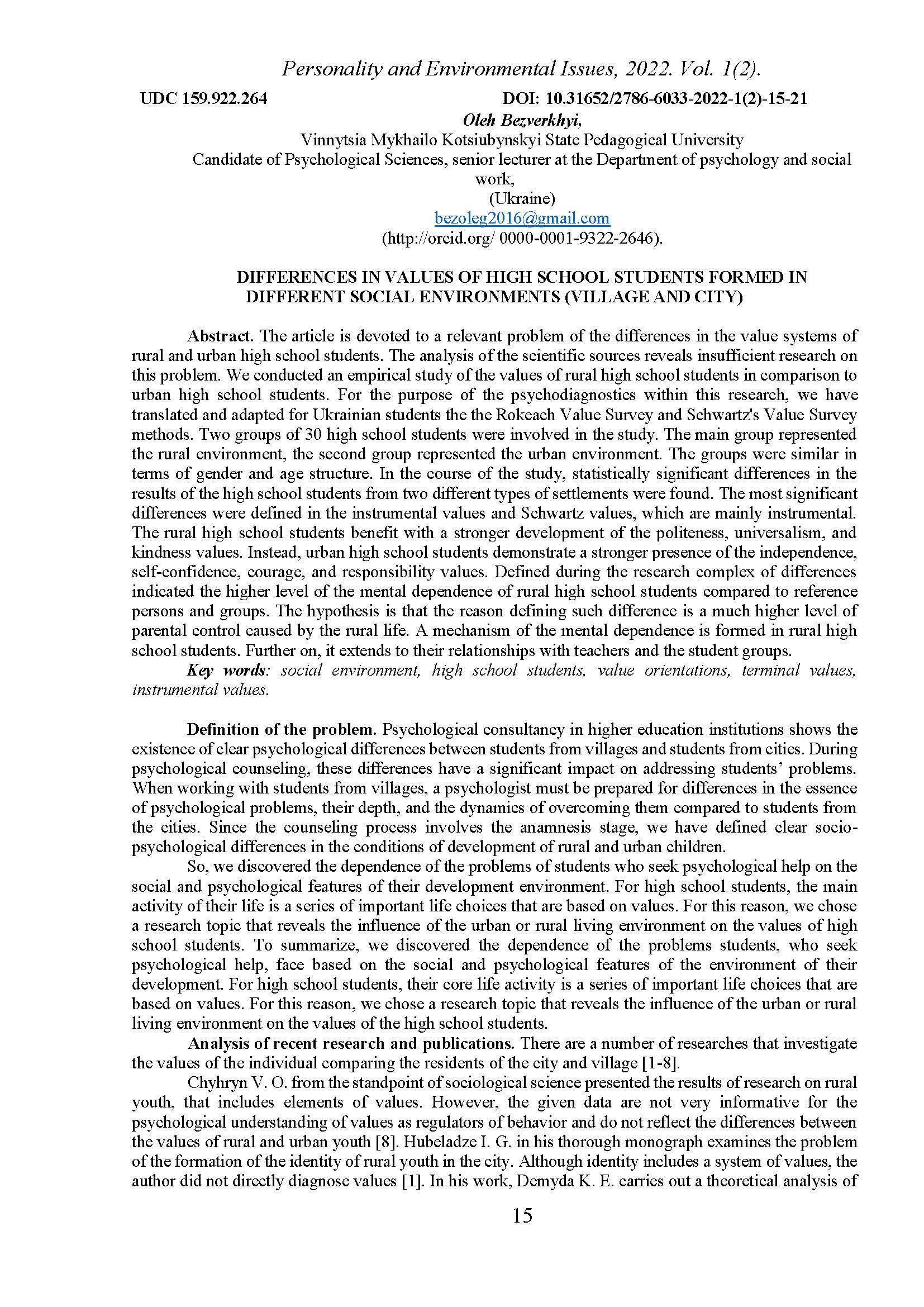Abstract
The article is devoted to a relevant problem of the differences in the value systems of rural and urban high school students. The analysis of the scientific sources reveals insufficient research on this problem. We conducted an empirical study of the values of rural high school students in comparison to urban high school students. For the purpose of the psychodiagnostics within this research, we have translated and adapted for Ukrainian students the the Rokeach Value Survey and Schwartz's Value Survey methods. Two groups of 30 high school students were involved in the study. The main group represented the rural environment, the second group represented the urban environment. The groups were similar in terms of gender and age structure. In the course of the study, statistically significant differences in the results of the high school students from two different types of settlements were found. The most significant differences were defined in the instrumental values and Schwartz values, which are mainly instrumental.
The rural high school students benefit with a stronger development of the politeness, universalism, and kindness values. Instead, urban high school students demonstrate a stronger presence of the independence, self-confidence, courage, and responsibility values. Defined during the research complex of differences indicated the higher level of the mental dependence of rural high school students compared to reference persons and groups. The hypothesis is that the reason defining such difference is a much higher level of parental control caused by the rural life. A mechanism of the mental dependence is formed in rural high school students. Further on, it extends to their relationships with teachers and the student groups.
References
Hubeladze I. H.: Silska molod u misti: poshuk identychnosti: monohrafiia. Kyiv 2015. 236.
Demyda K. Ye.: Aktualni problemy psykholohii. 2010, 27, 1, 128-131.
Komarova N. V.: Praktychna psykholohiia ta sotsialna robota. 2006, 4, 2-72.
Kryzhanovska Z. Yu., Novosad T. V.: Zbirnyk naukovykh prats RDHU. Psykholohiia: realnist i perspektyvy. 2018, 10, 91-95.
Lozovaia O. N.: Zhurnal praktykuiushcheho psykholoha. 2009, 15, 130-140.
Orban-Lembryk L.E.: Sotsialna psykholohiia. 2005, 5 (13), 54–65.
Pohorilska N.: Problemy suchasnoi psykholohii. 2016, 34, 421-431.
Chyhryn V. O.: Sotsiolohiia silskoi molodi: teoretyko-metodolohichni ta metodychni osnovy: avtoref. dys. d-ra sots. nauk: 22.00.04. Kyiv 2008. 30.
Rokeach M.: The nature of human values. New York 1973. 438.
Schwartz S. H.: Advances in experimental social psychology. 1992, 25, 1-65.

This work is licensed under a Creative Commons Attribution 4.0 International License.
Copyright (c) 2022 Oleh Bezverkhyi





